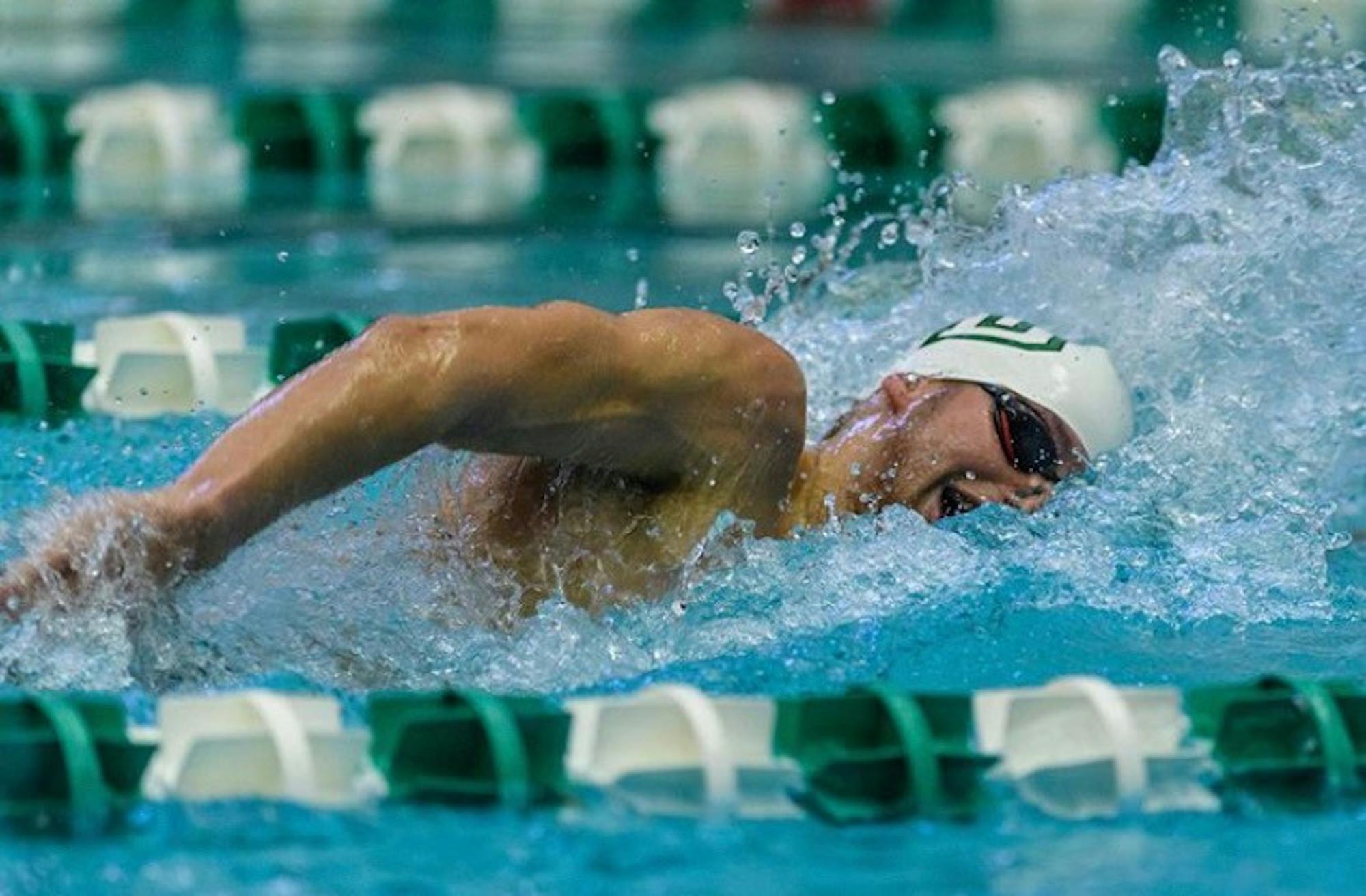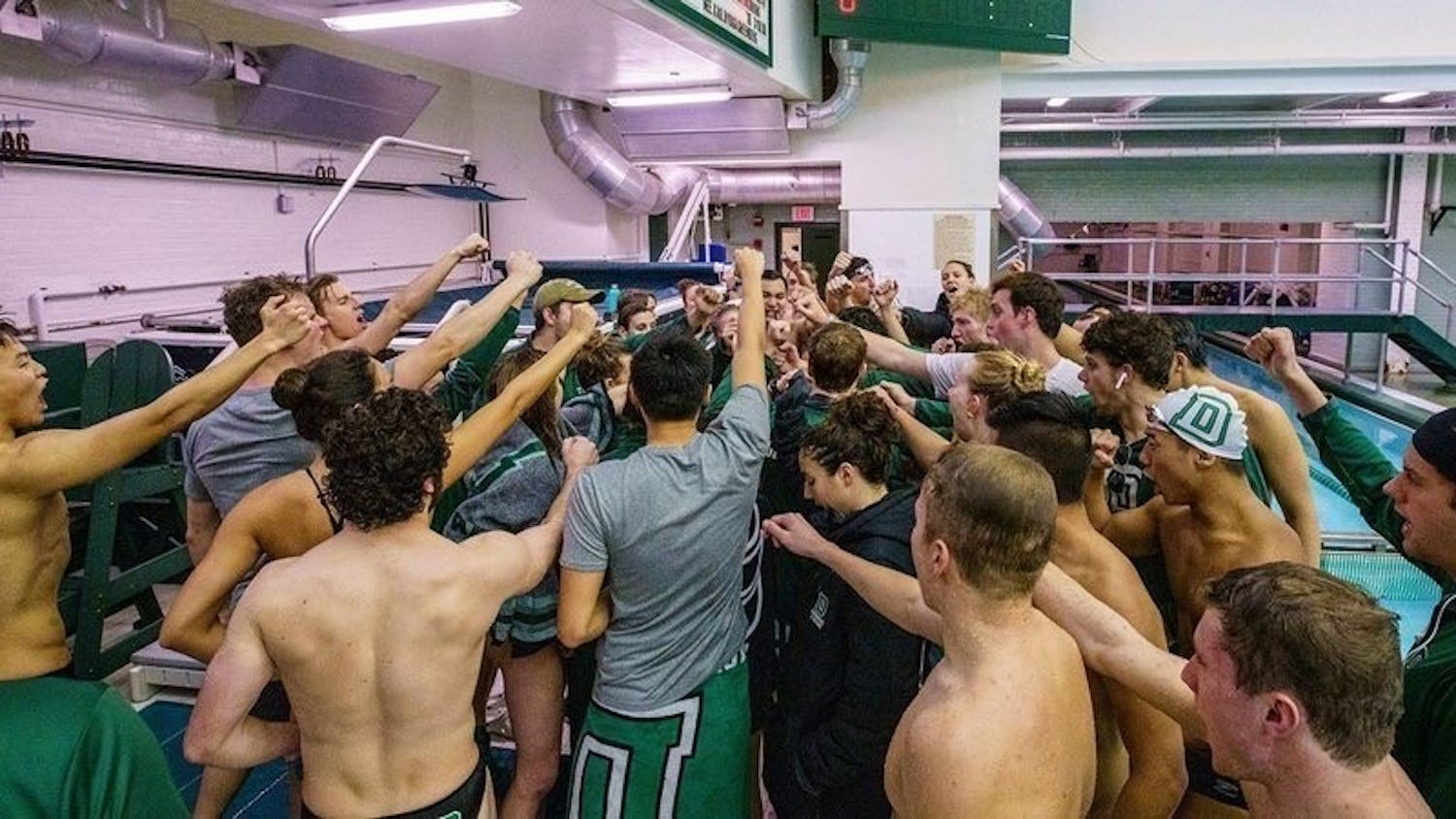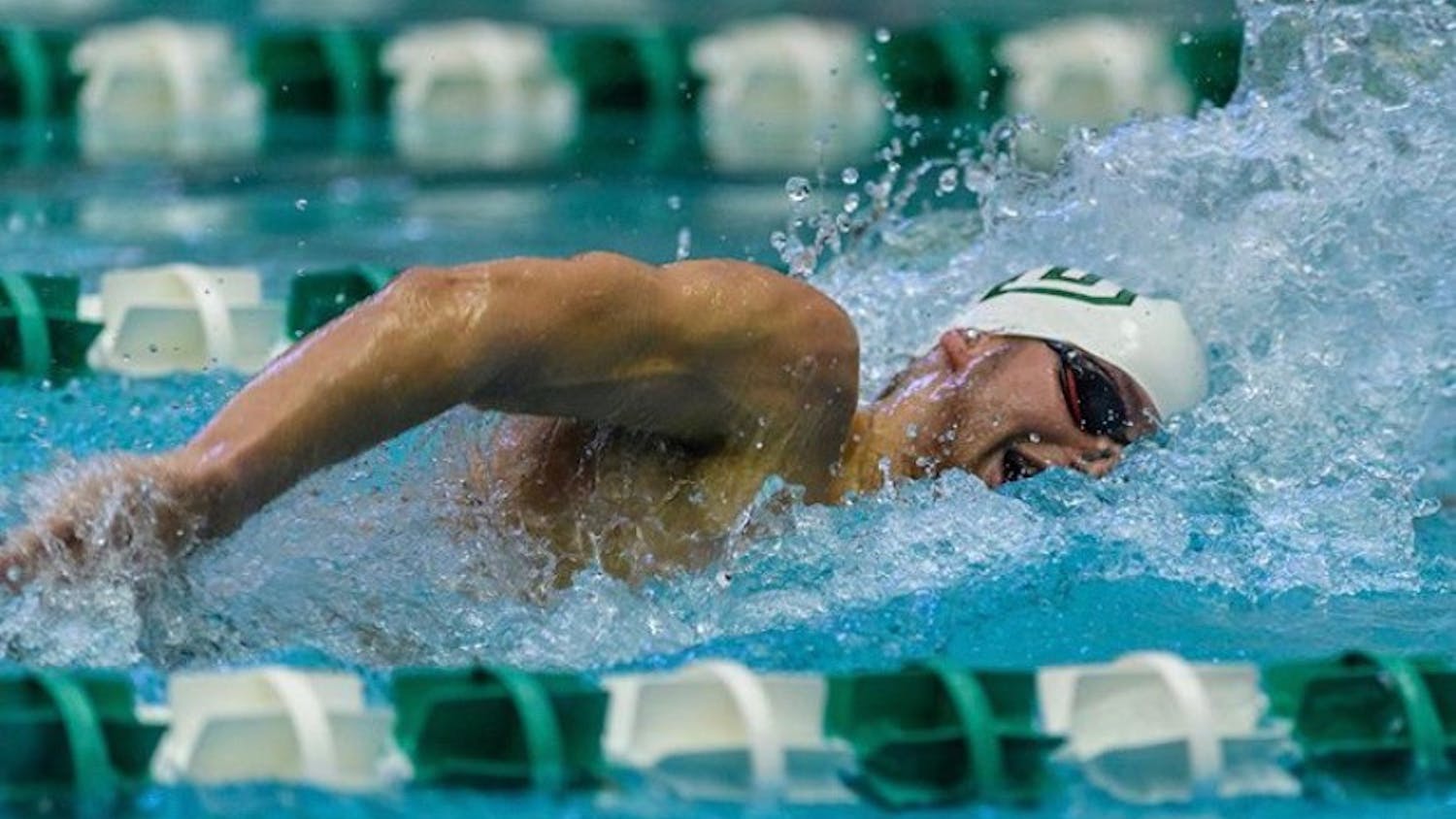Even after College President Phil Hanlon announced the reinstatement of five athletic teams on Friday morning, the wounds from the teams’ elimination more than six months earlier were still fresh.
Tensions boiled over between the athletics department and members of the five restored teams — men’s and women’s golf, men’s lightweight rowing and men’s and women’s swimming and diving — during a 7 p.m. Zoom meeting on the evening of the teams’ reinstatement. Dartmouth reinstated the teams and agreed to conduct a gender equity review after the women’s golf and women’s swimming and diving teams threatened litigation, alleging that Dartmouth was in violation of Title IX.
Over the hour-long call, led by athletics director Harry Sheehy and senior associate athletics director for varsity sports Tiffani-Dawn Sykes, student-athletes demanded accountability, apologies and answers to concerns over remaining competitive after losing incoming students from two recruiting cycles, along with coaches, transfers and training time.
Men’s swimmer Ethan Moon ’22 characterized the meeting as “entertaining” and “explosive.”
“It was chaos,” said former Dartmouth swimmer Connor LaMastra, who transferred to Northwestern University after his team was eliminated. Moon said the meeting served as “catharsis for the athletes.”
“[Sheehy] came into this call, [and] he very well knew what was about to happen,” Moon said. “We were going to rip him a new one, and he couldn't stop us. And so that's exactly what we did.”
Men’s swimmer Parker Hershberger ’22 said the tone of the meeting troubled him from the outset, claiming the athletics department had dismissed the impact of the past six months on the athletes and teams.
Tensions first spiked when a swimmer demanded Sheehy apologize for a July comment to The Dartmouth in which he said that the College “[wasn’t] willing to create second-class citizens in [the athletics] department that weren’t able to compete on an Ivy League level.” Sheehy said the athletes had misinterpreted his quote — which was meant to defend the decision to cut teams rather than reduce recruitment slots across all sports — and declined to apologize.
His response sparked a strained back-and-forth that culminated when the Zoom meeting spontaneously ended, which Sykes told the athletes was accidental.
When the meeting restarted, the reinstated student-athletes further pressed Sheehy to apologize for cutting the teams, to which he obliged. However, calls for concessions only grew.
Women’s swimmer Susannah Laster ’22 said she and her roommates specifically asked Sheehy to apologize to the women’s teams for potentially violating Title IX through the cuts. After Laster’s question, other members of the swimming and diving teams interjected, and Sheehy eventually apologized to the women “for being wrong.” Sheehy emphasized to the athletes that Dartmouth would move forward with the gender equity review promised in the settlement, which will determine whether the College is in compliance with Title IX.
“There was a lack of empathy” on the part of the athletics department during the call, Laster said, which Hershberger said was emblematic of the athletics department’s treatment of student-athletes after they were eliminated.
Multiple athletes said they pushed for accountability from the athletics department, unsatisfied with explanations from Sheehy and Sykes about the factors that led to their teams being cut and how Title IX compliance data “may not have been complete,” as Hanlon wrote in email on Friday.
Toward the end of the call, LaMastra denounced Sheehy and directly asked if he would resign. Sheehy said he would not. When he then asked Sheehy for a personal apology, Sheehy responded, “I’m sorry you transferred,” which LaMastra said felt like “a slap in the face.”
After the meeting, LaMastra argued that the athletics department needed a “complete rebuilding from the ground up,” a sentiment echoed by several others.
“When an administration has failed in a process like this, in such an egregious way and continuously degraded and been disrespectful and dismissive of their athletes, I think there needs to be a total revamping of the athletic administration, starting with the removal of Harry Sheehy,” LaMastra said.
Moon expressed more sympathy for Sheehy, however.
“I almost feel bad for [Sheehy] because he's clearly been boxed into a horrible, horrible lose-lose situation,” Moon said. “… But I actually feel most bad for him because in [Friday’s] email from Hanlon, Hanlon so clearly threw him under the bus.”
Requests for comment from Sheehy and Sykes were directed to College spokesperson Diana Lawrence, who did not respond directly to requests for comment about the Zoom meeting or calls for Sheehy’s resignation.
“As President Hanlon said in his community message on Friday, we sincerely apologize that this process has been, and continues to be, so painful to our current and former student-athletes and all who support them,” Lawrence wrote in an email. “… We look forward to partnering with the coaches and student-athletes as this process moves forward.”
The hostile Zoom meeting on Friday night was the start of what student-athletes anticipate will be a long and difficult rebuilding process. As the reinstated teams now attempt to transition smoothly back into practice and competition, student-athletes voiced concerns over their teams’ competitiveness, recruitment capabilities and level of trust with the athletics department.
The reinstated teams have lost almost two recruiting classes, according to Laster, as some incoming recruits in the Class of 2024 have transferred. Still without coaches, the teams cannot yet recruit for the Class of 2025, so they may lose “eight to 10 months” of recruiting in total, according to LaMastra. Moon described the remaining pool of available recruits as “the leftovers.”
Members of all three sports expect to find themselves several strokes behind when competition resumes. Since former Dartmouth golfer Kaitlyn Lees and one incoming recruit from the Class of 2024 transferred, women’s golfer Katherine Sung ’24 said that her team will not be competitive in its first season back. The swimming and diving teams lost recruits to Ivy League rivals such as Columbia University, the University of Pennsylvania and Princeton University and have been out of the water for months, according to Moon.
“It's going to take several years for us to be even semi-competitive again because the current sophomores, juniors and seniors have not been training, essentially at all,” said Moon, who has not swum in about eight months.
For the swimming and diving teams, this is not the first time that they will have to recover after facing cuts. When the teams were previously eliminated in 2002, it took the women’s team until 2009 and the men’s team until 2012 to finish above second-to-last place in the Ivy League championships, though the teams were already struggling before they were cut.
Hershberger was more optimistic about the team’s competitive chances, but he questioned how the swimming and diving teams can recruit athletes going forward after being cut twice in 18 years. LaMastra agreed.
“Even just cutting a team once is brutal, but having a team get cut twice — I don’t know as a recruit why I would go to a school where the athletic department simply just does not believe in a team,” LaMastra said.
Athletes from all three sports expressed unease about recruitment, though Moon expected the weakened competitiveness of the team to be the primary issue for future recruiting rather than issues with the athletics department.
Hershberger underscored the importance of trust in trying to heal the fractured relationship between the reinstated teams and the athletics department.
“How do we regain the trust of the athletes that are on the team?” Hershberger asked. “And how do we regain the trust of those prospective athletes who maybe do want to come to Dartmouth but are wary of the relationship between the team and the athletics department?”
As concerns about competitiveness and recruitment loom over a rocky start to reinstatement, student-athletes centered on one priority: accountability from the athletics department.
“I'm looking forward to working with the athletics department and the administration on how we can make Dartmouth athletics better because that's ultimately what needs to come out of this,” Hershberger said. "But I also believe that there needs to be some degree of accountability.”



